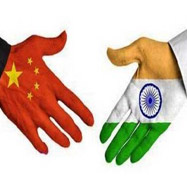Critical Assessment of China’s Vulnerabilities in Tibet
The paper looks at the critical vulnerabilities of China in the Tibetan Autonomous Region (TAR). Ever since China captured and annexed Tibet in 1950, it has been unable to integrate the Tibetan people with the mainland. The author looks at these criticalities from an Indian viewpoint and draws some key assessments for China watchers in India with regard to policy on Tibet.
- Published: 2013













